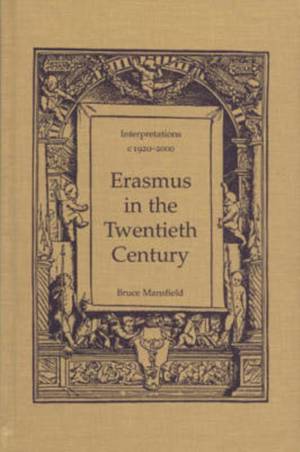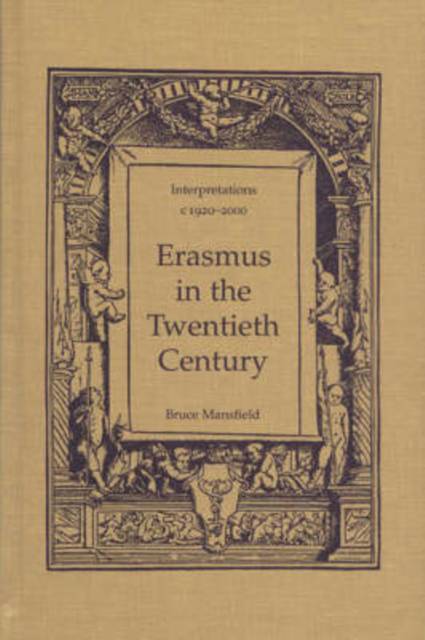
- Afhalen na 1 uur in een winkel met voorraad
- Gratis thuislevering in België vanaf € 30
- Ruim aanbod met 7 miljoen producten
- Afhalen na 1 uur in een winkel met voorraad
- Gratis thuislevering in België vanaf € 30
- Ruim aanbod met 7 miljoen producten
Omschrijving
Erasmus of Rotterdam is perhaps one of the most studied and published literary figures and religious thinkers; yet despite the lavish amount of attention paid to him and his work, scholarly opinion of his intellectual and historical importance is varied and ambiguous. Bruce Mansfield shows how shifting interpretations and changing critical regard for Erasmus and his work reflect cultural shifts of the last century.
Placing the development of Erasmus studies in the context of religious changes as well as shifts in humanities scholarship throughout the century, Mansfield draws out several main themes: the increasing awareness of the seriousness of Erasmus' thought on religion and politics, the emergence of Erasmus as a serious religious, even theological, thinker (against the view that he was a shallow moralist) and a revival of interest in his place in the rhetorical tradition.
Controversy nevertheless remains. The theological and rhetorical approaches have produced different results on how far Erasmus was an 'orthodox' thinker, differences that the influence of postmodernism may well enhance. Differences also remain over his personality. Above all, Mansfield shows that, despite highly impressive and convincing claims in the first half of the century, the extent and character of Erasmus' influence on his own and the following age remains an unresolved and divisive question.
This is the final volume in Professor Mansfield's trilogy that examines Erasmus' reputation from his death to the present day. It follows on his earlier studies, Phoenix of His Age: Interpretations of Erasmus c. 1550-1750 (1979) and Man on His Own: Interpretations of Erasmus c. 1750-1920 (1992).
Specificaties
Betrokkenen
- Auteur(s):
- Uitgeverij:
Inhoud
- Aantal bladzijden:
- 384
- Taal:
- Engels
- Reeks:
- Reeksnummer:
- nr. 15
Eigenschappen
- Productcode (EAN):
- 9780802037671
- Verschijningsdatum:
- 8/06/2003
- Uitvoering:
- Hardcover
- Formaat:
- Genaaid
- Afmetingen:
- 145 mm x 240 mm
- Gewicht:
- 607 g

Alleen bij Standaard Boekhandel
Beoordelingen
We publiceren alleen reviews die voldoen aan de voorwaarden voor reviews. Bekijk onze voorwaarden voor reviews.











